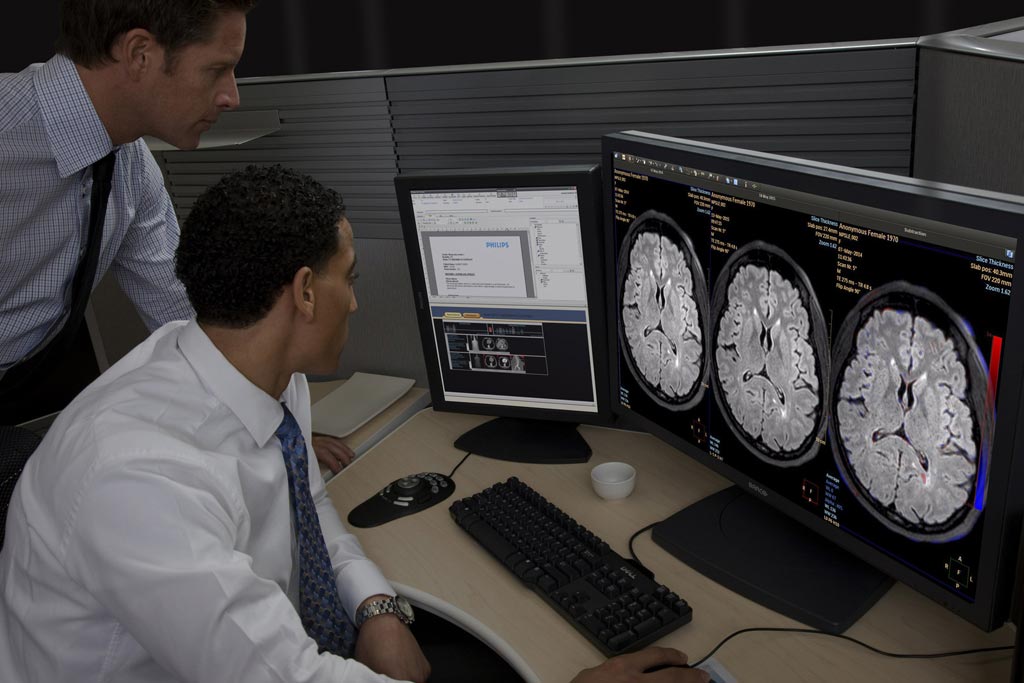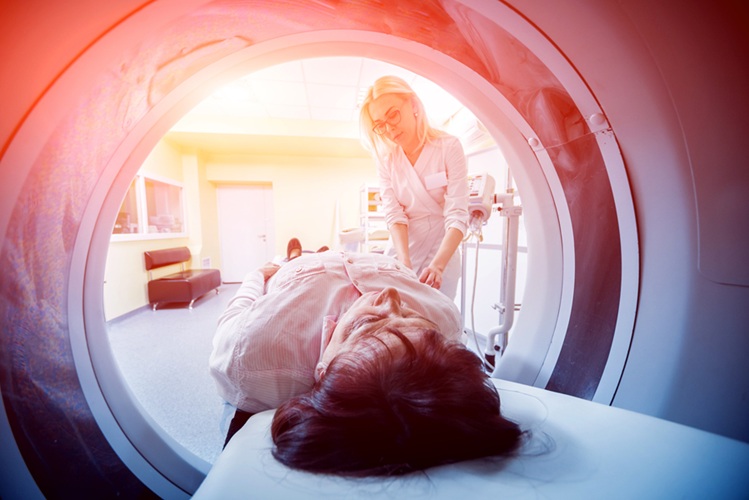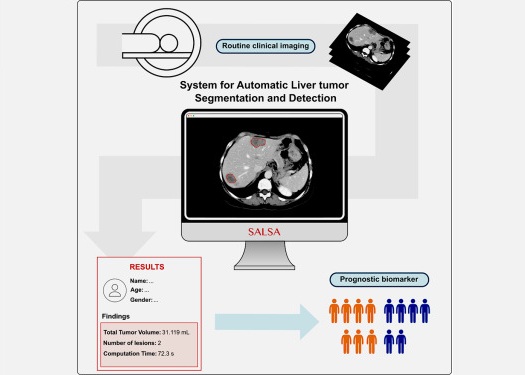FDA Clears Specialty Applications for Radiology Platform
|
By MedImaging International staff writers Posted on 03 Jul 2017 |

Image: The Longitudinal Brain Imaging (LoBI) is the newest Intellispace 9.0 portal clinical application approved US distribution (Photo courtesy of Philips Healthcare).
The US FDA has provided 510(k) clearance for new oncology, neurology and cardiology advanced applications for image comparison and analysis, and evaluation treatments and therapy response assessment.
The latest release of the clinical informatics platform now includes new advanced clinical applications for multi-modality tumor tracking, optimized lung-nodule assessment, and longitudinal brain imaging.
The new applications are for the Royal Philips (Amsterdam, the Netherlands) IntelliSpace Portal 9.0 portal, and are now available for marketing in the US. The most recent innovation cleared by the FDA was the Longitudinal Brain Imaging (LoBI) application that can be used to analyze brain images for tracking neurodegenerative disorders including stroke, Multiple Sclerosis (MS), and Alzheimer's disease. New oncology functionality includes qEASL, part of the Multi-Modality Tumor Tracking application, for enhanced tumor volume measurements using Magnetic Resonance Imaging (MRI) and Computed Tomography (CT) scans. The new Lung Nodule Assessment tool provides information about lung nodules from a single CT study, and can also track them across multiple studies.
The IntelliSpace Portal 9.0 portal already offers more than 70 radiology, cardiology, oncology, and neurology applications, and provides a comprehensive overview of a patient’s health. The new applications can enable clinicians to evaluate patients faster, across modalities, and to track therapy response over time.
Leiden University Medical Center professor of neuroradiology, Mark van Buchem, said, "Analytics applications optimized for clinical decision support and longitudinal and quantified patient tracking are becoming increasingly important to radiologists. They can help visualize and quantify very subtle manifestations of disease and differences over time that may not be seen with the naked eye. IntelliSpace Portal 9.0 integrates into our existing workflow and adds greatly to our patient care."
The latest release of the clinical informatics platform now includes new advanced clinical applications for multi-modality tumor tracking, optimized lung-nodule assessment, and longitudinal brain imaging.
The new applications are for the Royal Philips (Amsterdam, the Netherlands) IntelliSpace Portal 9.0 portal, and are now available for marketing in the US. The most recent innovation cleared by the FDA was the Longitudinal Brain Imaging (LoBI) application that can be used to analyze brain images for tracking neurodegenerative disorders including stroke, Multiple Sclerosis (MS), and Alzheimer's disease. New oncology functionality includes qEASL, part of the Multi-Modality Tumor Tracking application, for enhanced tumor volume measurements using Magnetic Resonance Imaging (MRI) and Computed Tomography (CT) scans. The new Lung Nodule Assessment tool provides information about lung nodules from a single CT study, and can also track them across multiple studies.
The IntelliSpace Portal 9.0 portal already offers more than 70 radiology, cardiology, oncology, and neurology applications, and provides a comprehensive overview of a patient’s health. The new applications can enable clinicians to evaluate patients faster, across modalities, and to track therapy response over time.
Leiden University Medical Center professor of neuroradiology, Mark van Buchem, said, "Analytics applications optimized for clinical decision support and longitudinal and quantified patient tracking are becoming increasingly important to radiologists. They can help visualize and quantify very subtle manifestations of disease and differences over time that may not be seen with the naked eye. IntelliSpace Portal 9.0 integrates into our existing workflow and adds greatly to our patient care."
Latest MRI News
- Cutting-Edge MRI Technology to Revolutionize Diagnosis of Common Heart Problem
- New MRI Technique Reveals True Heart Age to Prevent Attacks and Strokes
- AI Tool Predicts Relapse of Pediatric Brain Cancer from Brain MRI Scans
- AI Tool Tracks Effectiveness of Multiple Sclerosis Treatments Using Brain MRI Scans
- Ultra-Powerful MRI Scans Enable Life-Changing Surgery in Treatment-Resistant Epileptic Patients
- AI-Powered MRI Technology Improves Parkinson’s Diagnoses
- Biparametric MRI Combined with AI Enhances Detection of Clinically Significant Prostate Cancer
- First-Of-Its-Kind AI-Driven Brain Imaging Platform to Better Guide Stroke Treatment Options
- New Model Improves Comparison of MRIs Taken at Different Institutions
- Groundbreaking New Scanner Sees 'Previously Undetectable' Cancer Spread
- First-Of-Its-Kind Tool Analyzes MRI Scans to Measure Brain Aging
- AI-Enhanced MRI Images Make Cancerous Breast Tissue Glow
- AI Model Automatically Segments MRI Images
- New Research Supports Routine Brain MRI Screening in Asymptomatic Late-Stage Breast Cancer Patients
- Revolutionary Portable Device Performs Rapid MRI-Based Stroke Imaging at Patient's Bedside
- AI Predicts After-Effects of Brain Tumor Surgery from MRI Scans
Channels
Radiography
view channel
AI Improves Early Detection of Interval Breast Cancers
Interval breast cancers, which occur between routine screenings, are easier to treat when detected earlier. Early detection can reduce the need for aggressive treatments and improve the chances of better outcomes.... Read more
World's Largest Class Single Crystal Diamond Radiation Detector Opens New Possibilities for Diagnostic Imaging
Diamonds possess ideal physical properties for radiation detection, such as exceptional thermal and chemical stability along with a quick response time. Made of carbon with an atomic number of six, diamonds... Read moreMRI
view channel
Cutting-Edge MRI Technology to Revolutionize Diagnosis of Common Heart Problem
Aortic stenosis is a common and potentially life-threatening heart condition. It occurs when the aortic valve, which regulates blood flow from the heart to the rest of the body, becomes stiff and narrow.... Read more
New MRI Technique Reveals True Heart Age to Prevent Attacks and Strokes
Heart disease remains one of the leading causes of death worldwide. Individuals with conditions such as diabetes or obesity often experience accelerated aging of their hearts, sometimes by decades.... Read more
AI Tool Predicts Relapse of Pediatric Brain Cancer from Brain MRI Scans
Many pediatric gliomas are treatable with surgery alone, but relapses can be catastrophic. Predicting which patients are at risk for recurrence remains challenging, leading to frequent follow-ups with... Read more
AI Tool Tracks Effectiveness of Multiple Sclerosis Treatments Using Brain MRI Scans
Multiple sclerosis (MS) is a condition in which the immune system attacks the brain and spinal cord, leading to impairments in movement, sensation, and cognition. Magnetic Resonance Imaging (MRI) markers... Read moreUltrasound
view channel.jpeg)
AI-Powered Lung Ultrasound Outperforms Human Experts in Tuberculosis Diagnosis
Despite global declines in tuberculosis (TB) rates in previous years, the incidence of TB rose by 4.6% from 2020 to 2023. Early screening and rapid diagnosis are essential elements of the World Health... Read more
AI Identifies Heart Valve Disease from Common Imaging Test
Tricuspid regurgitation is a condition where the heart's tricuspid valve does not close completely during contraction, leading to backward blood flow, which can result in heart failure. A new artificial... Read moreNuclear Medicine
view channel
Novel Radiolabeled Antibody Improves Diagnosis and Treatment of Solid Tumors
Interleukin-13 receptor α-2 (IL13Rα2) is a cell surface receptor commonly found in solid tumors such as glioblastoma, melanoma, and breast cancer. It is minimally expressed in normal tissues, making it... Read more
Novel PET Imaging Approach Offers Never-Before-Seen View of Neuroinflammation
COX-2, an enzyme that plays a key role in brain inflammation, can be significantly upregulated by inflammatory stimuli and neuroexcitation. Researchers suggest that COX-2 density in the brain could serve... Read moreGeneral/Advanced Imaging
view channel
AI-Based CT Scan Analysis Predicts Early-Stage Kidney Damage Due to Cancer Treatments
Radioligand therapy, a form of targeted nuclear medicine, has recently gained attention for its potential in treating specific types of tumors. However, one of the potential side effects of this therapy... Read more
CT-Based Deep Learning-Driven Tool to Enhance Liver Cancer Diagnosis
Medical imaging, such as computed tomography (CT) scans, plays a crucial role in oncology, offering essential data for cancer detection, treatment planning, and monitoring of response to therapies.... Read moreIndustry News
view channel
GE HealthCare and NVIDIA Collaboration to Reimagine Diagnostic Imaging
GE HealthCare (Chicago, IL, USA) has entered into a collaboration with NVIDIA (Santa Clara, CA, USA), expanding the existing relationship between the two companies to focus on pioneering innovation in... Read more
Patient-Specific 3D-Printed Phantoms Transform CT Imaging
New research has highlighted how anatomically precise, patient-specific 3D-printed phantoms are proving to be scalable, cost-effective, and efficient tools in the development of new CT scan algorithms... Read more
Siemens and Sectra Collaborate on Enhancing Radiology Workflows
Siemens Healthineers (Forchheim, Germany) and Sectra (Linköping, Sweden) have entered into a collaboration aimed at enhancing radiologists' diagnostic capabilities and, in turn, improving patient care... Read more



















